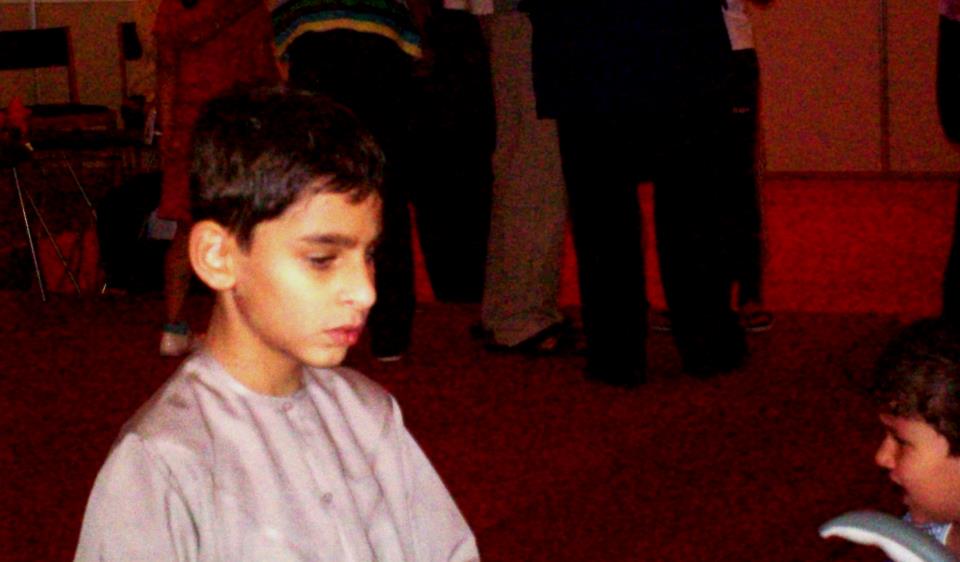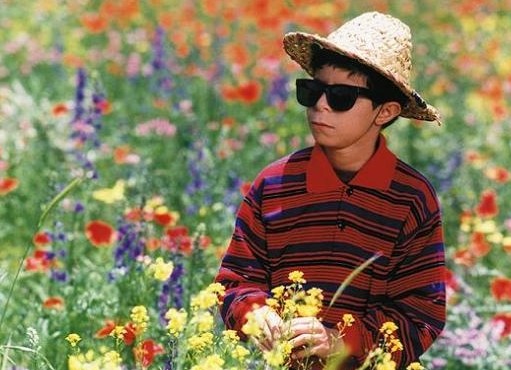Seeing Magic With a Blind Child
The real magic was in store after the show. A blind boy’s joy. His poor nanny’s love and compassion. No magic wand has ever been as powerful as a loving hand. MUHAMMED NOUSHAD remembers a magic show he happened to see with a visually challenged child.

Magic offers a subtle orientation to young minds to admire the greatest miracle worker of all: God. And to expect the most unexpected in life. Photo: Musa Izzat
There was a magic show going on in the children’s pavilion at the 30th edition of the Sharjah International Book Fair. Very typical and banal: no great amusements or “wow” moments. A white lady was performing tricks for the children sitting before her, rhythmic music was being played in the background, and the clown was continuously making fun of her and the audience, obviously to divert attention. Of course, the children were happy and excited. I remembered how my daughter Niya mol would have enjoyed it. Perhaps, magic is primarily intended for children, or the eternal child that constantly refuses to grow up in each one of us. In some way, every child who sees magic is being trained, in her sub-un-ultra-conscious minds, if such things exist at all, to see the world’s magical beauty and ugliness – unexpected, surprising, amusing, thrilling, shocking, illogical, deceptive, confusing, mysterious and endlessly unexplainable. Magic offers a subtle orientation to young minds to admire the greatest miracle worker of all: God. And to expect the most unexpected in life.
The clown kept us all laughing, not only the children, but also the parents, with and without children. When the magic ended, the magician and her assistant started blowing bubbles to the audience. Small and big bubbles, in interesting shapes. Children were excited; they all rose up, ran to the stage and started jumping to touch and break the bubbles. A total take over. The clown kept giving them more and more bubbles to jump, hit and crash. It was then I noticed something. An Indonesian lady was slowly taking a 5 year old Arab boy to the stage. From the way she took care of him, leading him from behind by holding both hands, I doubted if he was mentally challenged. But, he was not, as I soon realized that he was blind. And this kind-hearted nanny was struggling to help him touch those countless bubbles floating in the air, amidst the hustle-bustle of many naughty kids jumping at each bubble. Her attempts failed, continuously. It filled my heart, the love of a simple act. Though they couldn’t come near to the bubbles, the boy was happy, he was smiling, groping his hand in the air, in hope for a bubble. His nanny too was enjoying it, though she really wanted her boy to get at least one bubble. Having noticed this, the clown kindly came towards him and blew many bubbles to his face, he was elated. He touched almost all of them. It was the real magic. This boy’s joy. This poor woman’s love, an act of compassion. No magic wand has ever been as powerful as a loving hand.
The thought that I was seeing all these magic tricks with this visually challenged boy saddened me. When we were all laughing, when the kids were shouting in thrill, what this boy would have been doing! In darkness, perhaps, he would have been seeing better possibilities of magic, with the help of his affectionate nanny, imagining what we the ones blessed with sight could never imagine. Iranian filmmaker Majid Majidi’s famous protagonist young Muhammed, in The Color of Paradise came to my mind. Especially the light my dark soul encountered when I watched the film for the first time, sitting in a small hall in Calicut. Muhammed and his grandma had made me cry. Each time I see them, they bless me with tears. I remembered how PAM Haneefka, my friend and veteran theater practitioner, who saw the film with me, simply refused to talk for an unusually long time after watching the film. He just listened to my bla-bla about the film, without saying a word, even without looking at me, this was quite uncharacteristic of his enthusiastic nature, and I was surprised. After a long spell of silence, Haneefka told me, “what we saw was Quran”. I have never heard a better praise for Maijidi’s films.
May be in this city of Sharjah, where everything is primarily about appearance, color, attractiveness, showing off, capturing attention of others, vulgar exhibitionism, this boy and his humble nanny offer a lesson. A deep vision to those whose eyes are bright but insight is dark. I tried to talk to them, they were not much interested, and I had nothing specific to talk also, they just remained in the beauty of their impenetrably colourful world.
